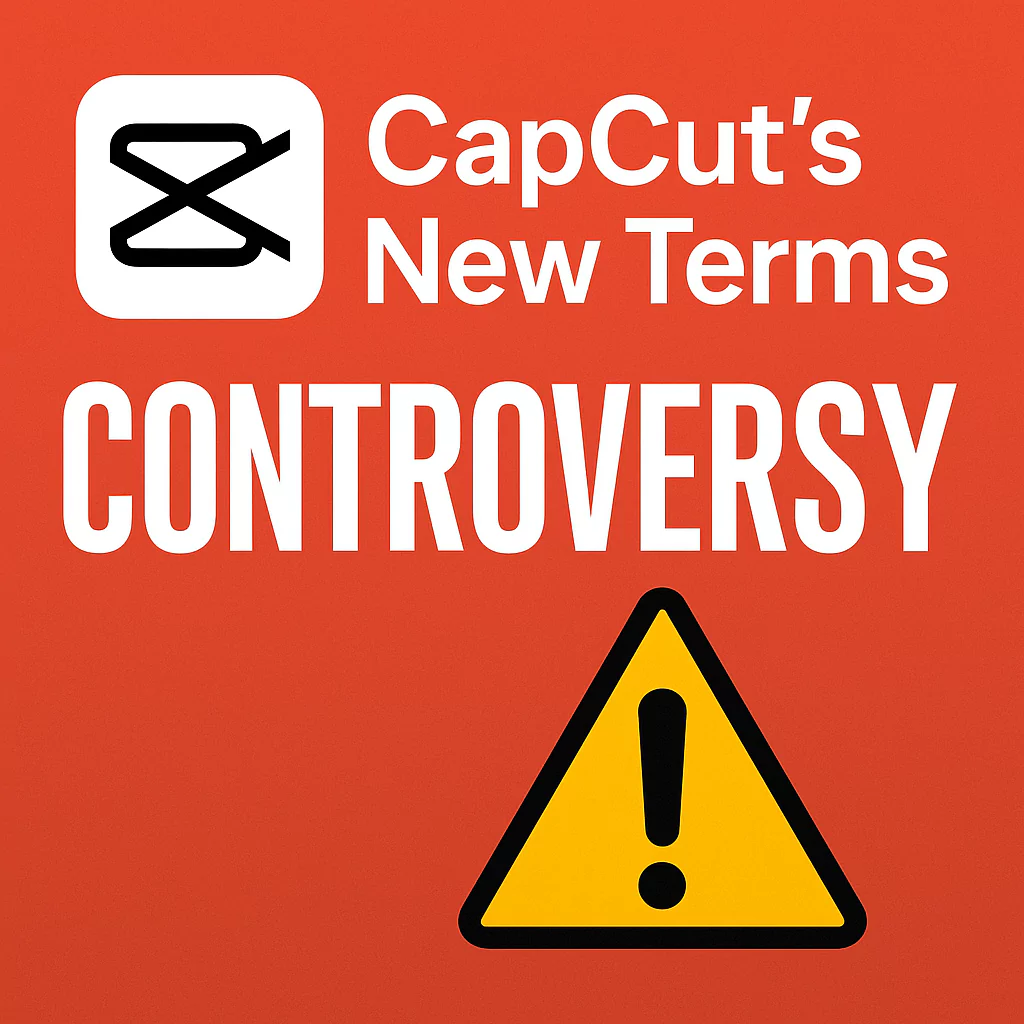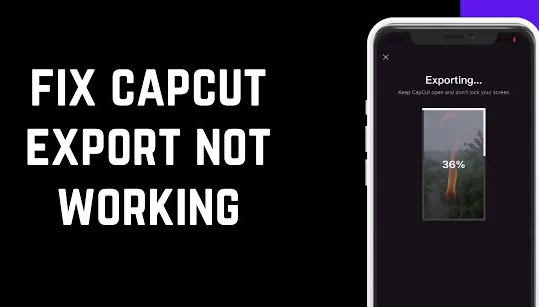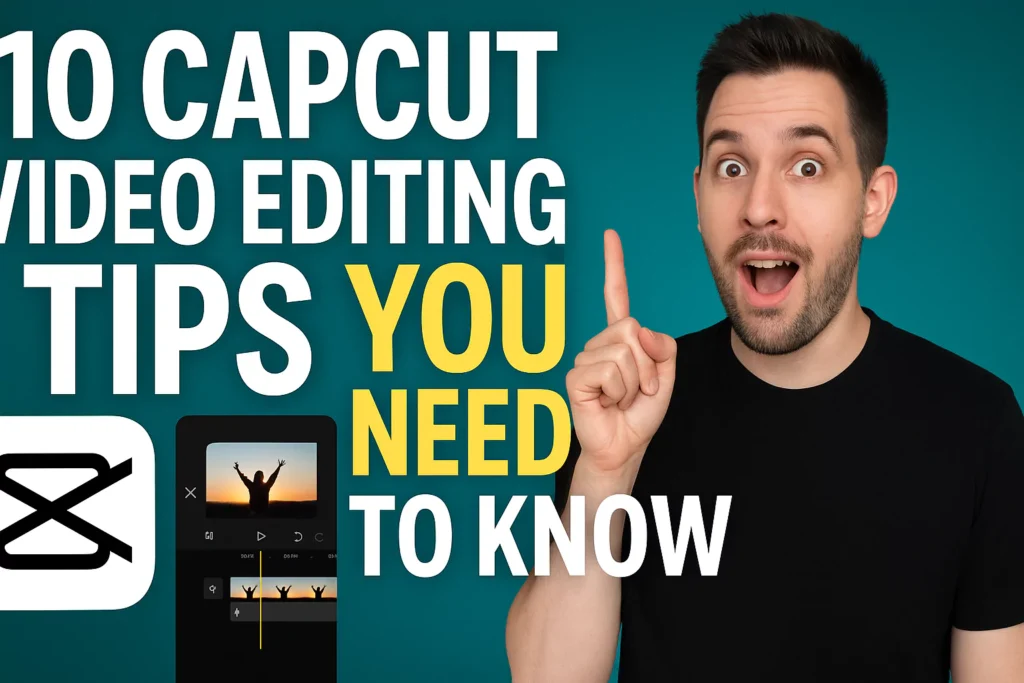When you upload videos or images to CapCut, you probably don’t think twice about the legal side of things. But recent updates in CapCut’s terms of service have made a lot of creators worried.
These updates change how your content can be used—without you always knowing. Understanding what you agree to is essential if you want to keep control over your work and avoid future problems.
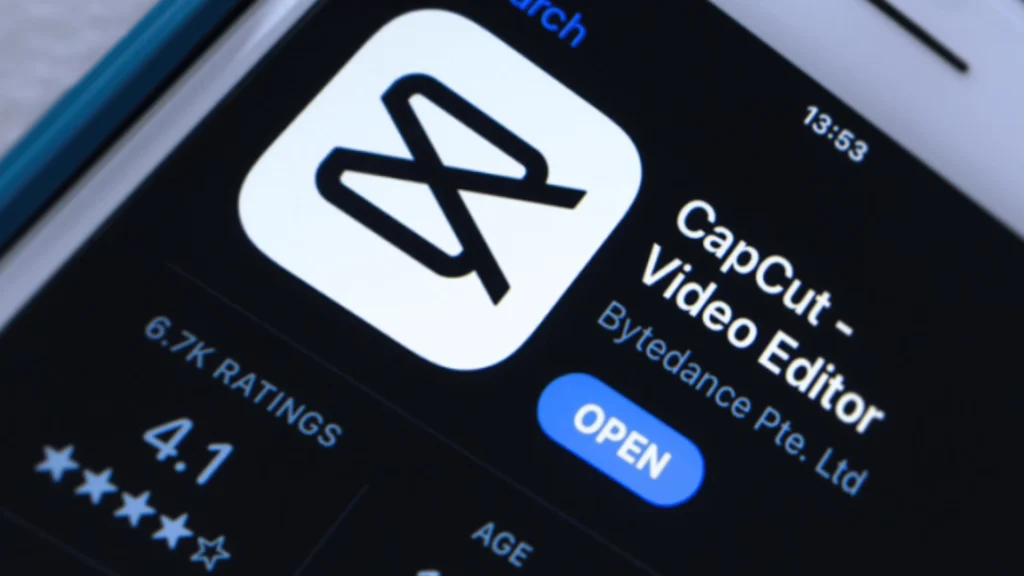
In this post, we will break down what the new CapCut rules mean, explore other tools with clearer rights policies, and give you practical steps to protect your content.
What are the Changes in CapCut’s Terms of Service?
Overview of the Update
CapCut’s parent company, ByteDance, now has broader rights over your uploads. When you upload a video, photo, voice recording, or anything else, you’re giving them a license to reproduce and reuse it. This license is not temporary—once your content is uploaded, it stays with them for good.
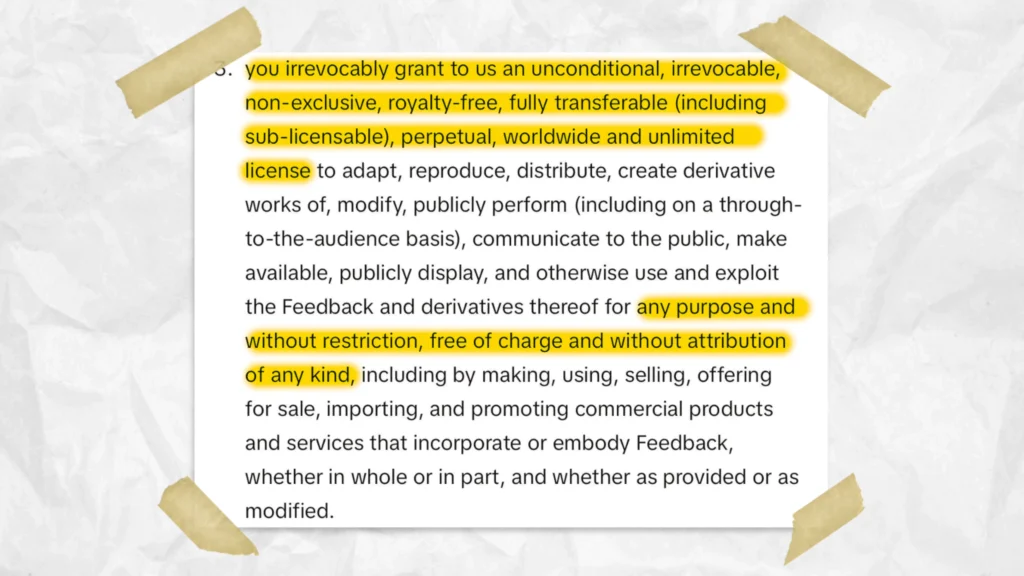
What’s New in CapCut’s Terms of Service?
CapCut can use your Content “Forever”
CapCut’s new terms grant the company a royalty-free, worldwide, irrevocable, sublicensable, and perpetual license to use any content you upload—including:
- Videos
- Drafts
- Photos
- Voice and face data
- Edits and animations
Even if you delete your account later, they still retain these rights.

Your Face and Voice are Included
The updated terms explicitly mention biometric data—such as your likeness, voice, and face. This has raised concerns about how this data might be used for purposes like AI training or advertising.
You Can’t Opt Out
There’s no way to restrict these rights or remove content from their control once it’s uploaded. Accepting the terms is mandatory for continued use of CapCut’s services.
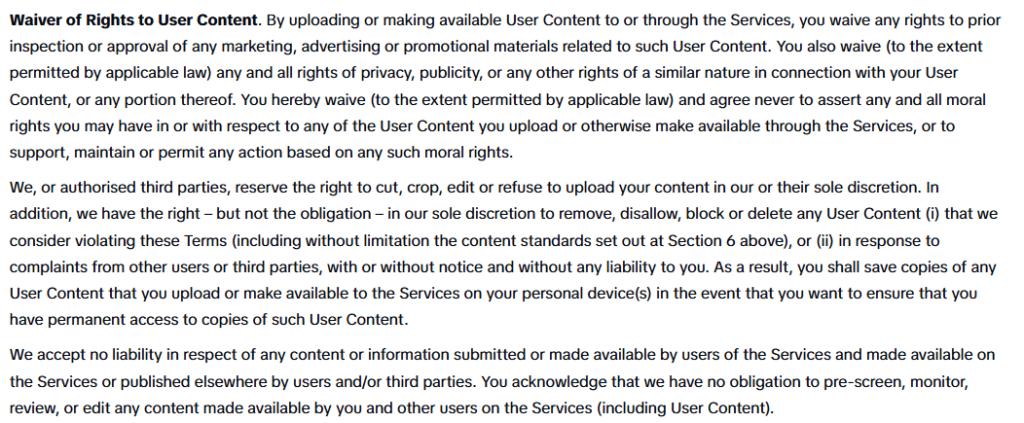
Key Details and What They Mean for You
The new rules grant CapCut the right to use your content in many ways:
- Marketing and advertising — Your videos might be used in ads without asking you.
- Reproduction and distribution — They can share your content across platforms.
- Licensing to others — They can allow third parties to use your work too.
The big concern? These rights are irrevocable. You can’t take back or stop them from using your content once it’s uploaded. Plus, your voice, images, or videos might be manipulated or used in ways you didn’t expect, especially with the rise of AI.
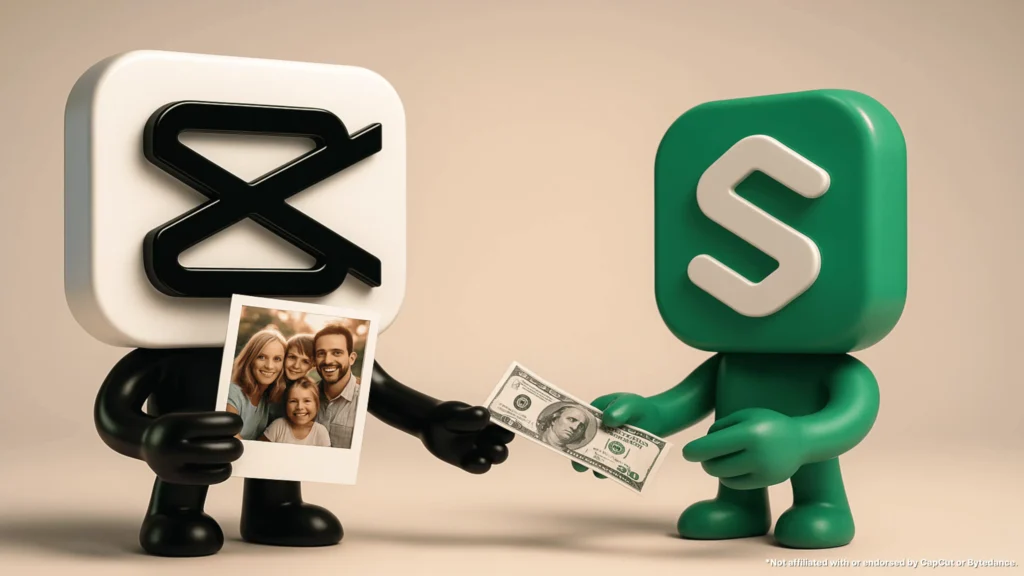
Why content creators should care
Your creations are part of your brand. Losing control over them can be risky—your voice could be mimicked, or your images used in ways that don’t reflect your brand.
Knowing this helps you decide whether CapCut is the right tool, especially if privacy and content ownership are top concerns.
Why This Matters
For content creators, this means:
| Risk | Safer Practice |
|---|---|
| Your video might be used in an ad without your permission or payment | Edit videos offline only |
| Private drafts or test videos might be stored and repurposed | Don’t sync content to CapCut’s cloud |
| Your face or voice might be used in AI training | Use anonymized or stock content when possible |

How it compares to other platforms
While other services like YouTube, Instagram, and Canva also require content licenses, CapCut’s terms stand out because:
- They apply even to unpublished content
- They don’t expire, even after deletion
- They include explicit biometric rights
In short: CapCut’s policy is more aggressive than most mainstream platforms.
What you can do now?
1. Edit Offline
Stick to the offline version of CapCut and never upload to the cloud unless absolutely necessary.
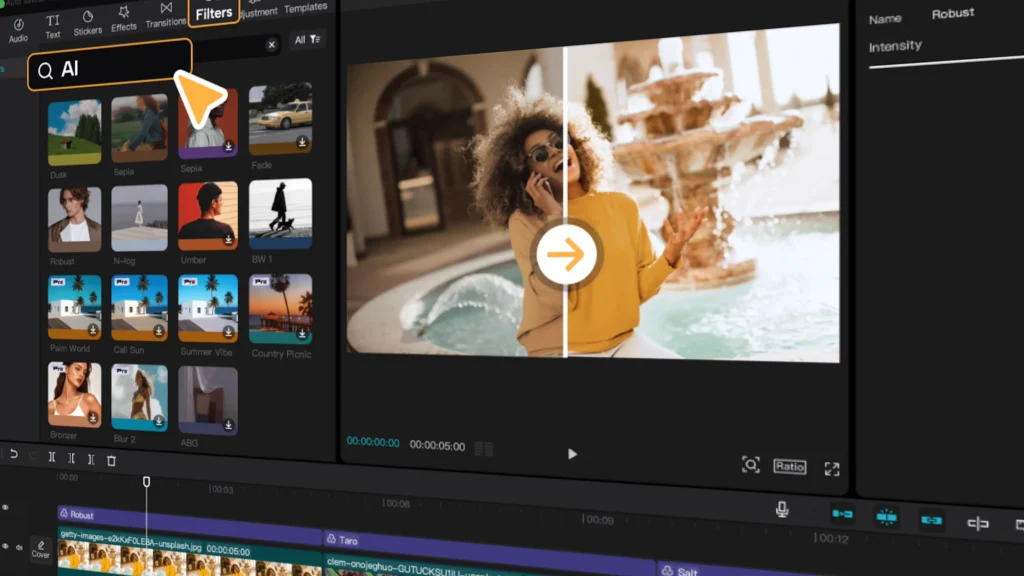
2. Export and Delete
After editing, export your final video and delete project files from within CapCut.
3. Switch to Alternatives
If this policy feels like a deal-breaker, consider other tools like:
- DaVinci Resolve – free, professional-grade
- VN Video Editor – mobile-friendly with fewer legal concerns
- Adobe Premiere Pro – full creative control, but paid
- Final Cut Pro – best for Mac users
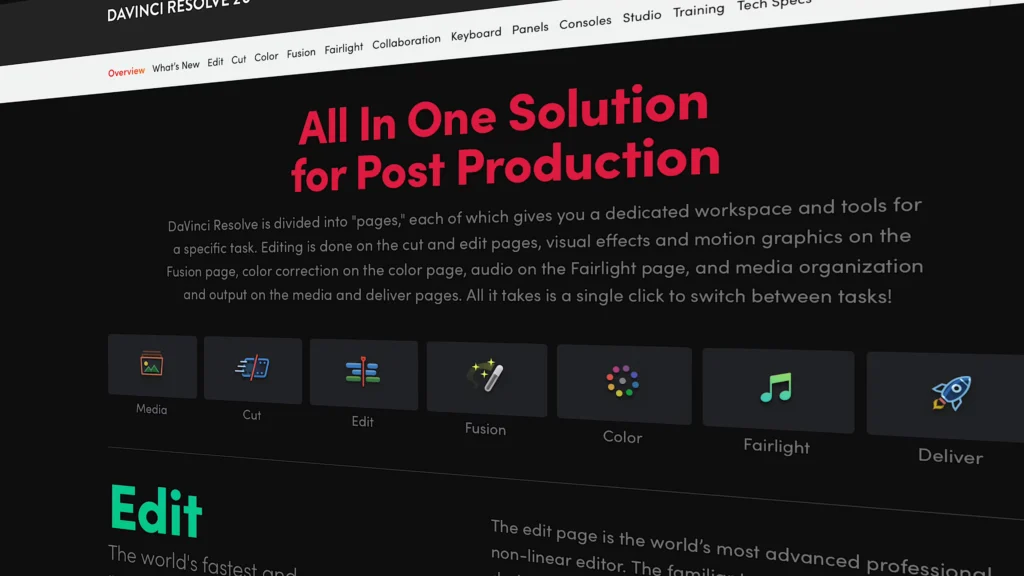
4. Stay Updated
Always read the Terms of Service during major updates—and stay connected with creator communities on Reddit or YouTube for real-time info.
Analyzing the platform’s rights and what you agree to
CapCut’s License Explained
When you upload to CapCut, you’re giving a broad, non-revocable license. They can:
- Reproduce your work
- Distribute it
- Use it in advertising
- License it to third parties
While you still own your original work, they have permission to do almost anything with it, forever. That’s a lot of power in their hands.
Pros and Cons of Using CapCut
Pros:
- Free to use
- Easy and fast editing tools
- Seamless integration with TikTok
- Good mobile editing options
Cons:
- Little transparency on where your content ends up
- Cannot revoke permissions after upload
- Risks content manipulation or misuse
- Broad rights granted for marketing and other uses
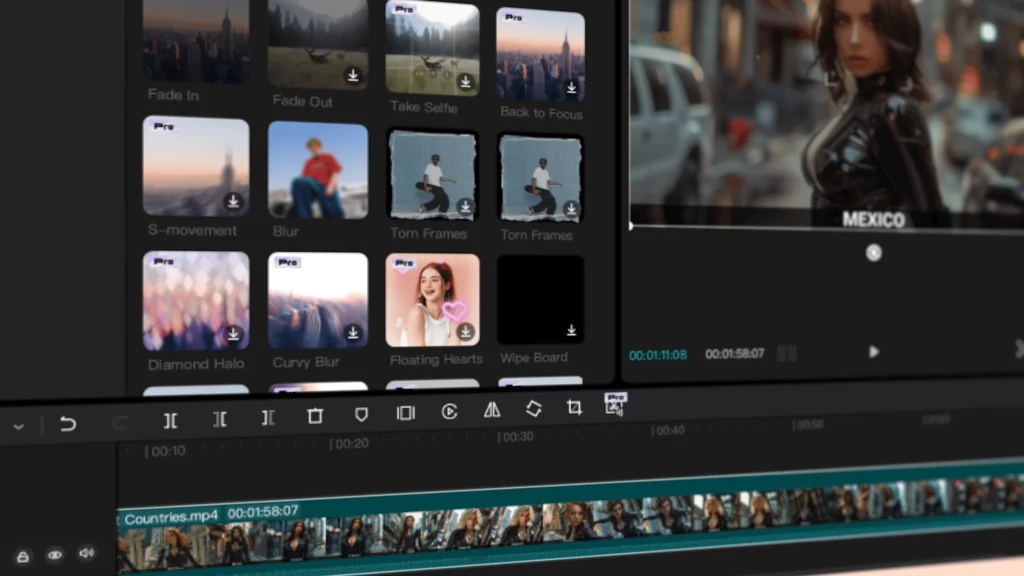
Real-World Example
Suppose you create a short clip with your voice and upload it to CapCut. The company could, without asking, use that clip in a global ad campaign or give others permission to use it. This may not seem like a big deal until you realize your work isn’t fully yours anymore.
What experts are saying
CapCut does not take ownership of your content—but by accepting the terms, you grant them:
- The ability to use and modify your work
- Rights to distribute or monetize your content
- Freedom to use your voice or image in ways you can’t control
Experts noted that these kinds of rights are “extremely broad” and could be difficult to challenge later, especially in jurisdictions with weaker creator protections.
Better Alternatives: Platforms with Clearer Ownership Rights
Descript: Ownership and Licensing Explained
Descript is a handy tool for video editing that also respects your rights. When you upload content, you keep ownership. They only have a license to process your files—nothing else. You can delete your content anytime and grant or revoke access as needed.
Advantages:
- You retain ownership
- License is limited and revocable
- Clear on permissions for editing and syncing
Limitations:
- You need a paid plan for full features
- Not ideal for editing on your phone—it’s more desktop-focused
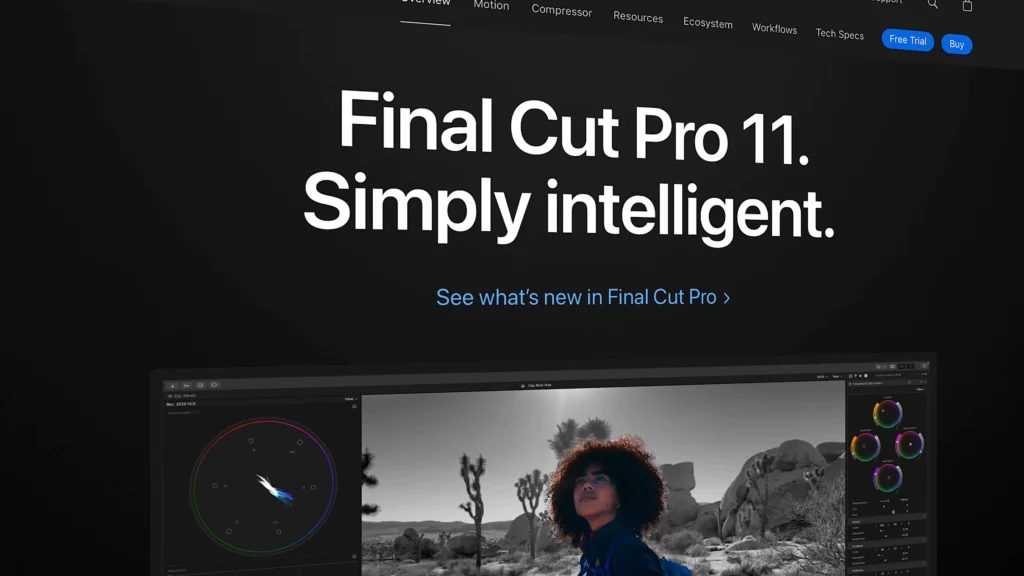
Canva: Clear Content Rights
Many marketers love Canva because of its simplicity. When you upload content, you keep ownership. Canva’s license is limited; they don’t claim rights to use your work for marketing. However, if you use their stock images or pro elements, you’re agreeing to different licenses.
Pros:
- You keep ownership
- Clear guidelines on using stock assets
- Easy to collaborate with teams
Cons:
- Using Pro assets might come with restrictions
- You need to download content multiple times for different platforms
- Be cautious about licensing stock elements
Other Noteworthy Platforms
While many tools have their pros and cons, look for platforms that specify clearly who owns what and what rights you’re giving up. Avoid tools with vague or overly broad license agreements.
Practical Tips for Content Creators and Marketers
Protect Your Content Rights
- Read the terms carefully before uploading anything. Don’t just click “Agree.”
- Choose platforms that respect ownership—like DeScript or Canva.
- Backup everything. Keep your original files safe to control future use.
Navigating Platform Choices
- Consider whether the platform offers a revocable license, meaning you can stop their use later.
- Think about how much control you want over your content.
- Use paid tools if they offer clearer rights management—it’s often worth extra protection.
Legal and Ethical Tips
- When in doubt, check with a legal professional.
- Be cautious when uploading sensitive or proprietary material.
- Avoid automatically giving away your voice or unique content unless you really trust the platform.
Future-Proof Your Content Strategy
- Keep an eye on updates to terms of service.
- Spread your work across different platforms.
- Focus on building your brand with content you fully own and control.
CapCut remains a powerful and user-friendly editing tool—but its new Terms of Service come at a cost. As AI, cloud storage, and data rights evolve, it’s critical that creators understand what they’re signing away.
If your creative freedom and personal rights matter to you, take the time to adjust how you use CapCut—or consider switching platforms.
Conclusion
Recent changes to CapCut’s terms of service put the spotlight on your rights over your own content. While it’s a great, free tool, the broad license granted to the company means you lose some control once you upload. That might be OK for casual projects, but for personal branding or sensitive material, you should think twice.
Carefully choose your editing tools and read their policies. Look for platforms that respect your ownership rights and give you the ability to revoke permissions when needed. Protecting your content isn’t just smart—it’s essential.
Stay informed, read everything your platforms ask for, and never turn over control without knowing what you’re giving up. Your content belongs to you—and with the right tools and knowledge, you can create freely and confidently.

